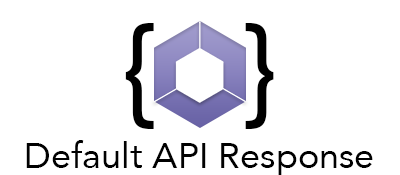Download the PHP package ftd-educacao/default-api-response without Composer
On this page you can find all versions of the php package ftd-educacao/default-api-response. It is possible to download/install these versions without Composer. Possible dependencies are resolved automatically.
Download ftd-educacao/default-api-response
More information about ftd-educacao/default-api-response
Files in ftd-educacao/default-api-response
Package default-api-response
Short Description It's a Laravel format for an API responses.
License GNU General Public License v3.0
Informations about the package default-api-response

Welcome to FTD Default API Response!
- About
- Installation
- How to use
- The success method
- The paginate method
- The error method
- Advanced use for the success, paginate and error methods
- The custom method
- The defaultStatusCode method
- The code list for defaultStatusCode method
About
This package was created to extend the Laravel Framework response system, and elevate him to the standard described on the {json:api} website[^jsonapi].
The answers besides creating a more friendly and readable formatting also contemplate the control of the Headers according to the last code.
Installation
Use composer do install our package:
And call the provider inside your Laravel /config/app.php file:
Now it's done and we're ready to go!
How to use
FTD API Response give us 5 new methods:
- success
- paginate
- error
- custom
- defaultStatusCode
Every method has a particular way to use, but always easy.
The success method
This method will throw a header status code 200 and put your content inside a data wrapper:
Example:
Result:
Example:
Result:
The paginate method
This method will throw a header status code 200 and put your content inside a data wrapper, and create another wrapper called meta, for the pagination properties:
Example:
Result:
The error method
This method will throw a header status code 400 and put your content inside a errors wrapper:
Example:
Result:
Advanced use for the success, paginate and error methods
If you need change the default status code of this methods, you can give a second parameter, like:
The custom method
This method is used for who need more control of the entire response:
- The default content is null
- The default header status code is 200
- The default extra headers is null
- The default header content type is 'application/json'
Example:
Result: In your header you will see the:
or
Depends on which browser you are using.
And, finally, the response body will receive the contents, but without the default data wrapper:
If you need to force download of a PDF file, for example, this method is the right way to do it.
The defaultStatusCode method
This method will throw a header status code and depends on which code, put default message content inside a data or errors wrapper:
Example:
Result:
The code list for defaultStatusCode method
| Code | Reference |
|---|---|
| 102 | 'Processing', |
| 200 | 'OK', |
| 201 | 'Created', |
| 202 | 'Accepted', |
| 203 | 'Non-authoritative Information', |
| 204 | '',//No Content |
| 206 | 'Partial Content', |
| 207 | 'Multi-Status', |
| 302 | 'Found', |
| 304 | 'Not Modified', |
| 400 | 'Bad Request', |
| 401 | 'Unauthorized', |
| 402 | 'Payment Required', |
| 403 | 'Forbidden', |
| 404 | 'Not Found', |
| 405 | 'Method Not Allowed', |
| 406 | 'Not Acceptable', |
| 409 | 'Conflict', |
| 413 | 'Payload Too Large', |
| 415 | 'Unsupported Media Type', |
| 416 | 'Requested Range Not Satisfiable', |
| 422 | 'Unprocessable Entity', |
| 423 | 'Locked', |
| 424 | 'Failed Dependency', |
| 500 | 'Internal Server Error', |
| 501 | 'Not Implemented', |
| 503 | 'Service Unavailable' |
If you need more information about status code, the HTTP Status Codes website[^statuscodes] may help you.
[^jsonapi]: {json:api} A specification for building apis in json.
[^statuscodes]: httpstatuses.com is an easy to reference database of HTTP Status Codes with their definitions and helpful code references all in one place.


